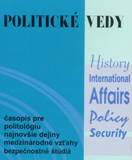Riziko nedostatku on-line gramotnosti v kontexte E-aktivizmu
Risks of Lack of Online Literacy in Context of E-activism
Author(s): Roland KyškaSubject(s): Politics / Political Sciences
Published by: Univerzita Mateja Bela
Keywords: parliamentary elections in Slovakia; e-activism; Internet media; e-participation
Summary/Abstract: A massive spread of Internet connections and, in particular, of web 2.0, built mostly on conversation and web applications enabling users to create and easily transfer texts, pictures, videos or sound recordings, came along with the possibilities of civic participation as well as communication between citizens and representatives of the political power. Fear of authoritative governments arising under unlimited and free dissemination of opposing opinions in online environment, manifested in the form of application of restriction measures and Internet censorship, combined with the use of social media tools in organizing protests in those countries often forms a biased view on the so called twitter revolutions. In this respect we can mention anti-government demonstrations in Moldova after marred elections or citizens’ protects in Iran, as well as the role of new technologies in the revolutionary movement of the so called Arab Spring. In non-democratic countries with a monopoly position of state media under the control of the government, the Internet constitutes an alternative to the dual system and a good platform for dissemination of opposing opinions, whereby the positive effect strongly suppresses the debate on disadvantages of the content spread in such manner. On the contrary, in plurality societies, where there is no big problem with free spreading of ideas, we can observe shortcomings resulting from the growth of the influence of web content on the political life of the countries. Also the political situation in Slovakia shortly before the parliamentary elections in March 2012 is an example of it; the pre-election campaign in the traditional view was, by its virtue, marginalized by various revelations and information published usually anonymously on various web platforms. In a country that has its negative experience with abusing intelligence services in the political battle, however, such activities affected a significant part of voters and, to a large extent, redefined political communication of traditional parties. Many of them seemed to not fully understand the power of web and, on the contrary, underestimated that form of communication. Parliamentary elections results ended in a disaster for the right, with opposition left-wing Smer winning 83 out of 150 mandates. Events of the past days also stressed insufficient level of online literacy of inhabitants, which, in combination with insufficient social education and interest in public affairs may have negative consequences in many aspects.
Journal: Politické vedy
- Issue Year: 15/2012
- Issue No: 4
- Page Range: 54-73
- Page Count: 17
- Language: English

